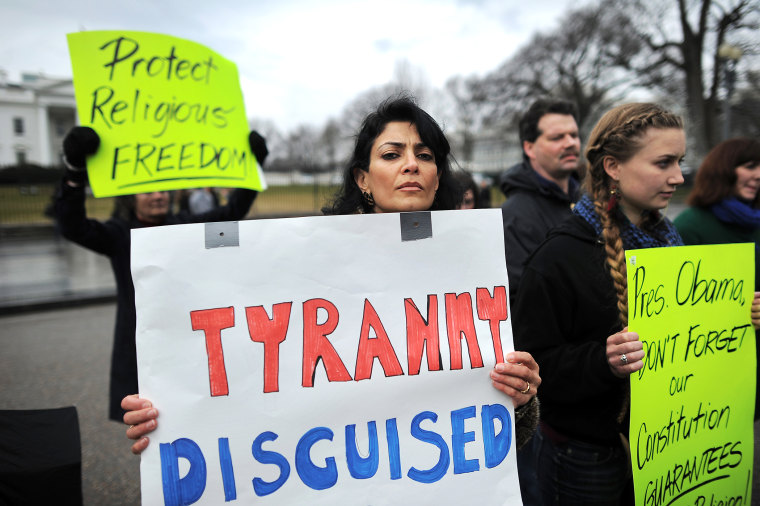One conservative craft store chain says it has the religious freedom to deny birth control for women employees.
Oklahoma-based retailer Hobby Lobby is asking the U.S. Supreme Court to take up its lawsuit against the Affordable Care Act's requirements to provide contraceptives for workers.
Lawyers for the privately-owned retail chain and its sister company Mardel Christian bookstore have said the health care law's requirement that the company provide insurance coverage for morning-after pills, emergency birth control methods, and intrauterine devices goes against the corporation's religious beliefs. Hobby Lobby sued the Obama administration last September over the contraception mandate.
"These abortion-causing drugs go against our faith," Hobby Lobby founder and CEO David Green said. "We simply cannot abandon our religious beliefs to comply with this mandate."
The Supreme Court denied Hobby Lobby's request for a permanent exemption from the contraceptive mandate in December, but was later granted a temporary exemption by a federal judge in July.
According to the Associated Press, Hobby Lobby currently offers 16 forms of birth control listed under the Affordable Care Act, but the Green family's objection is over birth control methods that can prevent implanation of a fertilized egg in the uterus, such as emergency contraception or an intrauterine device.
"As the federal government embarks on an unprecendented foray into health care replete with multiple overlapping mandates, few issues are more important than the extend to which the government must recognize and accommodate the religious exercise of those it regulates," lawyers for Hobby Lobby wrote in their filing on Monday.
The Supreme Court's ruling would depend entirely on whether or not corporations can be seen as individuals entitled to religious freedom protected by the First Amendment and the Religious Freedom Restoration Act, a law that protects a person from laws that would "substantially burden a person's free exercise of their religion." Just weeks after Hobby Lobby was granted a temporary exemption to the mandate, a federal appearls court rejected a similar challenge by the Conestoga Wood Specialties Corp., whose owners are Mennonite Christians.
The Obama administration has already granted exemptions from the law to organizations that have proved its main purpose is to teach others about religion, and that its employees and people it serves share those same beliefs—such as churches.
But both Hobby Lobby and Conestoga Wood Specialties Corp. do not meet the required conditions to qualify for exemptions, therefore leaving the question open of whether or not a company's owners are allowed to impose religious values on their workers. For Consetoga Wood Specialties Corp., the court ruled that a company was not allowed a "personal right" to exercise freedom of religion, and that its owners beliefs were separate from the company. But in the case of Hobby Lobby, the Green family was granted the temporary exemption because the federal judge in the case found that the company's $1.3 million in fines daily for not providing health care coverage would be a substantial burden.
The diverging rulings have opened up the possibility for the U.S. Supreme Court to hear challenges to the health care law that many organizations hoping for exemption will wish to pursue. If Hobby Lobby is granted a permanent exemption based on the premise that the company's religious freedom is burdened, it could open the door to further issues that question the rights of individuals employed at similar businesses.
